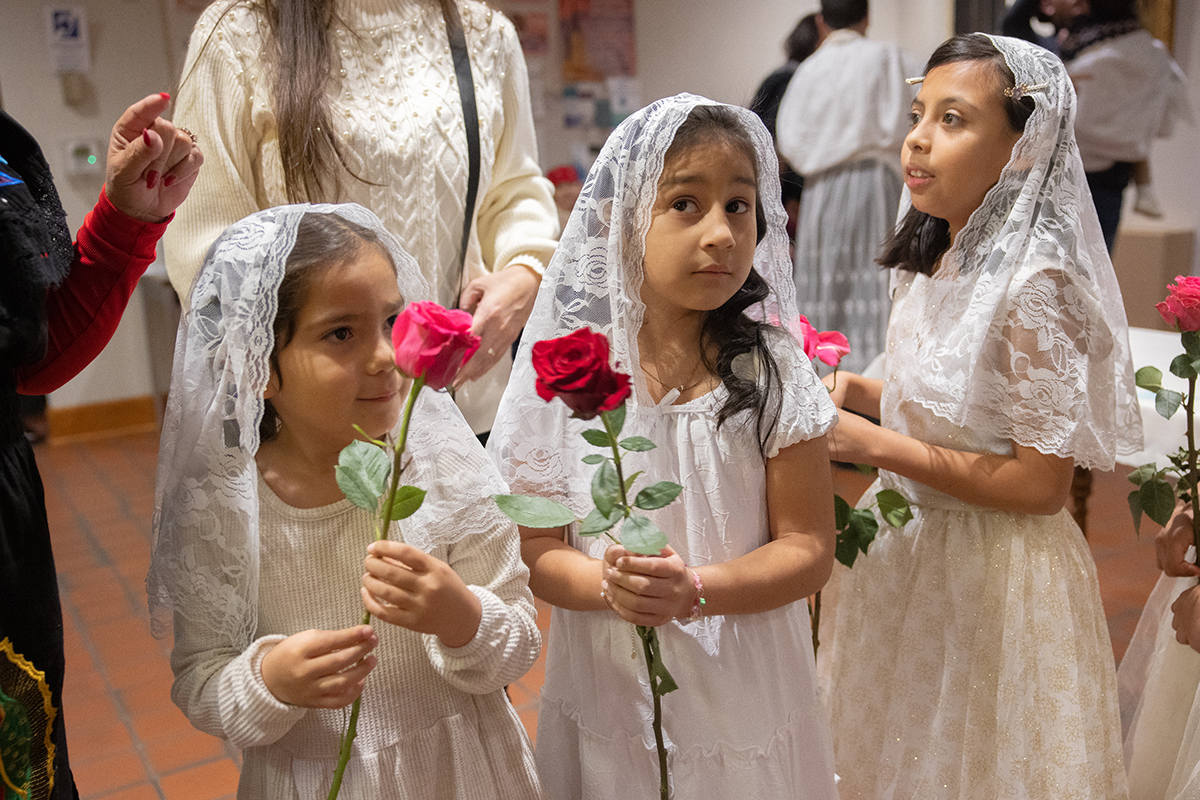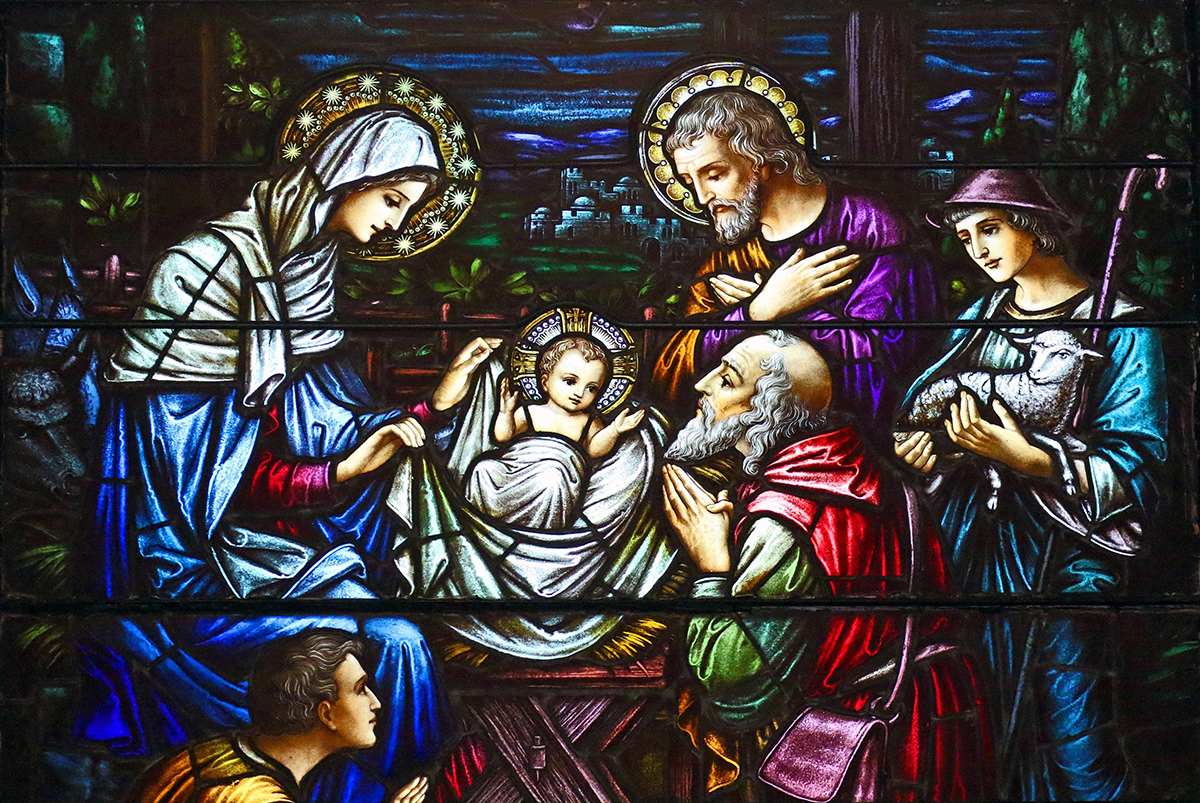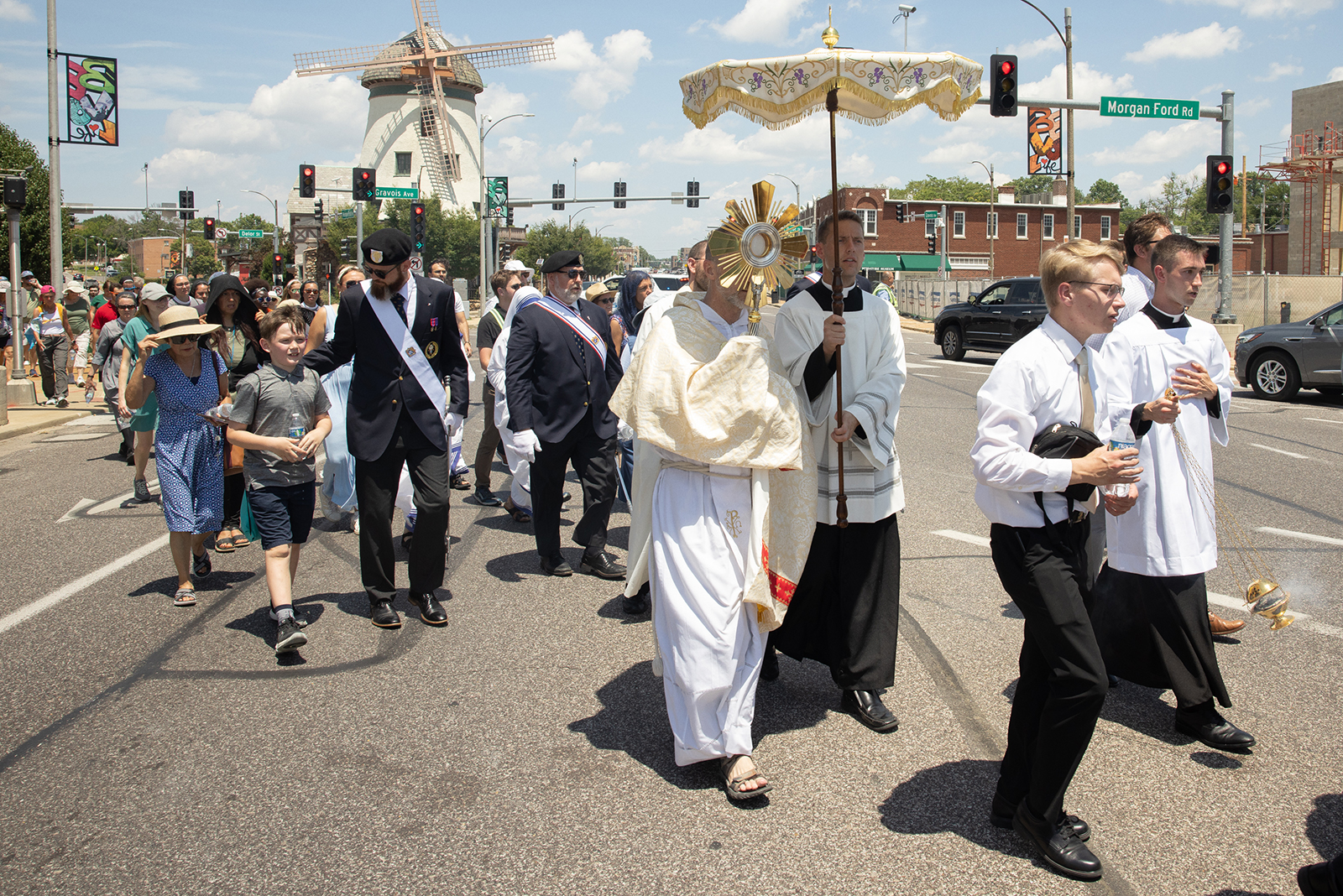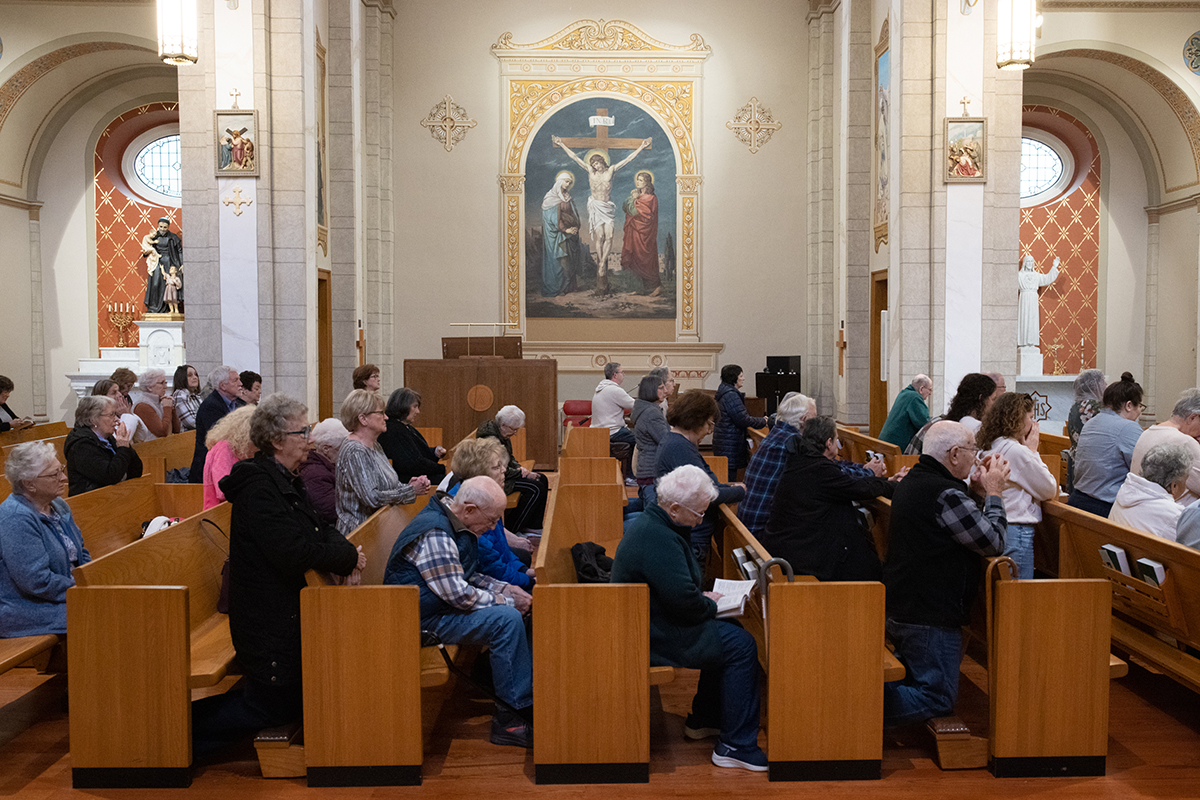St. Louis Catholics assist hospital in Bethlehem
Order of Malta, parishes here support maternity hospital, neonatal critical care
St. Louis Catholics are part of a worldwide effort to support Holy Family Hospital in Bethlehem. Officials with the hospital’s foundation praise that effort and stress the need for parishes, organizations and individuals to lend a hand in the pro-life medical treatment.
Holy Family Hospital is the maternity hospital and neonatal critical care center in the Bethlehem region of the West Bank. Its neonatal intensive care unit cares for critically ill newborns, some weighing just over one pound. More than 70 percent of babies in the region are born at the hospital.
“While the hospital is run by the Order of Malta, it’s a work that everyone can get behind because everyone knows the story of a Child born in Bethlehem,” said Michele Bowe, ambassador from the Order of Malta to the State of Palestine. St. John Paul II asked people to deliver life, peace and hope in the Holy Land, “and so we need every Catholic parish to get behind us,” Bowe said, giving examples of fundraising by schoolchildren and others.
St. Louisans have been important contributors to the hospital’s operations, more than half of which is funded by donations. Bowe, who also serves as president of the Holy Family Hospital of Bethlehem Foundation, thanked parishes in the archdiocese that support the foundation through tithing and allowing speakers to address the need for support. “Our employees are the hands and feet of the Lord, and here in St. Louis we’re like the shepherds shouting the Good News,” Bowe said. “We need more shepherds to shout the Good News and bring more parishes in.”
Bethlehem is the second-poorest government in Palestine behind Gaza with high unemployment, and most of the people losing their income since the COVID-19 pandemic hit as tourism ceased, Bowe said. Currency changes have made goods more expensive, and the hospital has had additional costs to mitigate the spread of the virus, she added.
Vaccinations have not been widely available, and few have been vaccinated.
Dr. Peter Kelly, president of the Order of Malta American Association who is a semi-retired ophthalmologist in Boston, first visited the hospital in 2007. “It was like walking into an oasis,” he said. “You’re surrounded by all this poverty, run-down buildings, graffiti, barriers. But it’s a modern-day hospital.”
Kelly, Bowe and Kate Robinson, executive director of the foundation, were in St. Louis for a Mass and dinner co-hosted by the Order of Malta and Equestrian Order of the Holy Sepulchre.
Michael Heck, a hospital foundation board member, Order of Malta member and parishioner at Mary Mother of the Church in south St. Louis County, visited the hospital just before the COVID-19 pandemic and “encountered an oasis of peace and comfort.”
He said those who come to the hospital “are not being turned away at the inn like Mary and Joseph. That should never happen again.”
Holy Family Hospital cares for everyone — Christian, Muslim or any other religion, Heck said, regardless of ability to pay. “We are the face of Christ to each other, and God calls us to love Him and one another. This is one way to show that.”
The birth of babies at Holy Family Hospital and the support it receives is good news, Bowe explained. “We receive each child that is born as the Christ Child. We have an ecumenical staff, are a teaching hospital and practice Catholic medicine, spreading our faith through the teaching, the hope, the employment and the new life.”
Saving babies born at as little as 23 weeks gestation in the neonatal intensive care unit and keeping them in the hospital as long as is needed “is not the best economic situation, but it shows each life is sacred,” Bowe said.
>> Holy Family Hospital in Bethlehem
Holy Family Hospital of Bethlehem Foundation is a nonprofit organization with a mission to deliver life, peace and hope in the Holy Land.
The foundation works to support Holy Family Hospital in Bethlehem, a state-of-the-art hospital for women and infants just 1,500 steps from the traditional site of the birthplace of Christ.
There are approximately 600 checkpoints in the West Bank, restricting movement between cities for Palestinian people. The barrier wall is approximately 258 miles long restricting movement and access to jobs, health care and goods.
The West Bank is 2,263 square miles, which is an area slightly smaller than the state of Delaware. The population of the West Bank, comprised of Christians and Muslims, is 2.6 million, with 722,000 recognized as refugees by United Nations Relief Works Agency.
Incorporated in 1997, the foundation has spent the past 20 years bringing essential medical care to families throughout the Holy Land. As a primary work of the Order of Malta — the world’s oldest Christian charity that started 900 years ago in the Holy Land — the foundation serves to promote its Catholic values of preserving life, fostering peace and bringing hope to those without a voice.
Holy Family Hospital of Bethlehem Foundation supports 58% of the hospital’s annual fundraising budget and 100% of its capital expenditure budget.
For information or to make a donation, visit birthplaceofhope.org.
>> Service to the vulnerable and the sick
The Sovereign Order of Malta is one of the oldest institutions of Western and Christian civilization. A lay religious order of the Catholic Church since 1113 and a subject of international law, it has diplomatic relations with more than 100 states and the European Union, and permanent observer status at the United Nations. It is neutral, impartial and apolitical.
Today, the Order of Malta is active in 120 countries caring for people in need through its medical, social and humanitarian works. Its social projects provide support for forgotten or excluded members of society.
>> Numbers
Holy Family Hospital in Bethlehem
• 191 employees
• More than 144,000 services offered last year
• 4,364 births last year and 423 newborns in the neonatal intensive care (4,700 expected this year, with 450 expected to be in the neonatal intensive care unit)
• 25 babies stayed more than 50 days and 77 stayed more than 75 days last year
• 45 percent of patients and 19 percent of staff are refugees
St. Louis Catholics are part of a worldwide effort to support Holy Family Hospital in Bethlehem. Officials with the hospital’s foundation praise that effort and stress the need for parishes, … St. Louis Catholics assist hospital in Bethlehem
Subscribe to Read All St. Louis Review Stories
All readers receive 5 stories to read free per month. After that, readers will need to be logged in.
If you are currently receive the St. Louis Review at your home or office, please send your name and address (and subscriber id if you know it) to subscriptions@stlouisreview.com to get your login information.
If you are not currently a subscriber to the St. Louis Review, please contact subscriptions@stlouisreview.com for information on how to subscribe.





